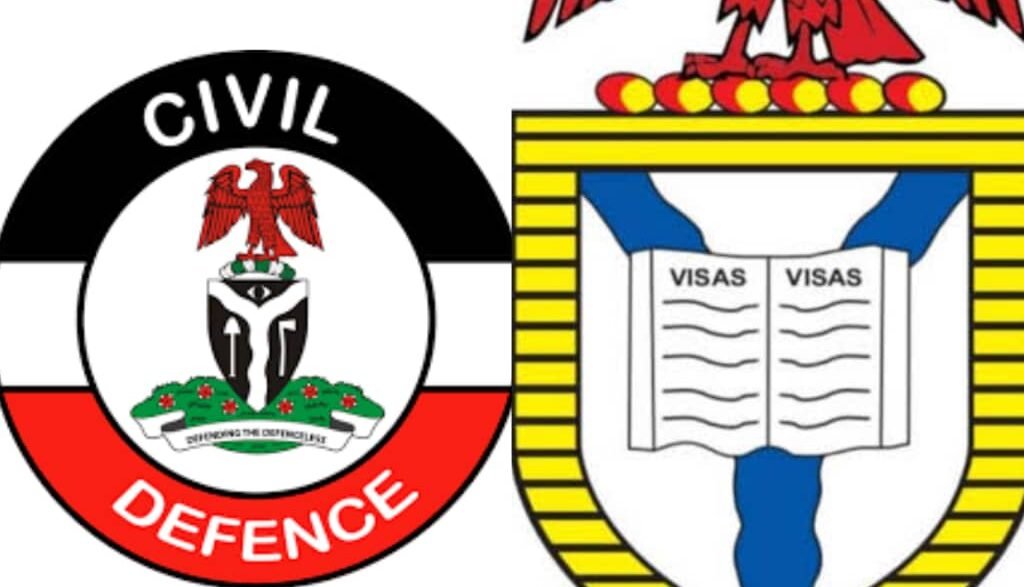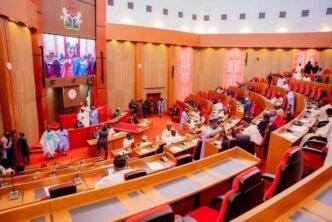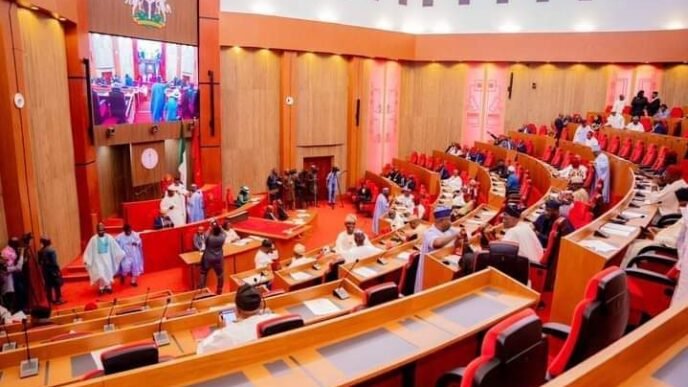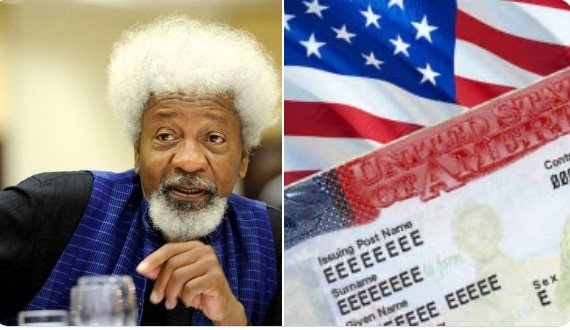The Federal Government has released the list of shortlisted candidates for the Computer-Based Test (CBT) stage of the ongoing recruitment exercise into four key paramilitary agencies — the Nigeria Security and Civil Defence Corps (NSCDC), the Nigeria Immigration Service (NIS), the Federal Fire Service (FFS), and the Nigerian Correctional Service (NCoS).
This was announced on Wednesday, October 30, 2025, in a statement issued in Abuja by the Secretary of the Civil Defence, Correctional, Fire, and Immigration Services Board (CDCFIB), retired Maj.-Gen. Abdulmalik Jubril.
The statement, obtained by the News Agency of Nigeria (NAN), directed all applicants who applied for positions in any of the four agencies to visit the official recruitment portal, recruitment.cdcfib.gov.ng, from Thursday, October 31, 2025, to confirm whether they had been shortlisted.
Shortlisted Candidates to Undergo CBT
According to the CDCFIB, the shortlisting marks the transition from the initial application phase to the testing stage of the recruitment process. The Computer-Based Test (CBT) will serve as a key assessment to evaluate applicants’ aptitude, analytical skills, and suitability for service in the country’s paramilitary institutions.
The board emphasized that only candidates who successfully passed the CBT will proceed to the next phase, which includes physical screening, document verification, and medical examinations.
“Applicants are advised to log on to the CDCFIB recruitment portal from Thursday, October 31, to check their status. Only shortlisted candidates will be invited to participate in the Computer-Based Test, which will be conducted nationwide under strict supervision,” the statement read in part.
“The board wishes to reaffirm its commitment to a transparent, merit-based, and fair recruitment process that upholds integrity and national standards.”
Agencies Involved in the Recruitment
The 2025 recruitment exercise covers four key paramilitary services under the Ministry of Interior:
- Nigeria Security and Civil Defence Corps (NSCDC): Tasked with safeguarding critical national assets, disaster management, and internal security support.
- Nigeria Immigration Service (NIS): Responsible for border security, immigration control, and passport administration.
- Federal Fire Service (FFS): Charged with fire prevention, rescue operations, and emergency response management.
- Nigerian Correctional Service (NCoS): Oversees the custody, rehabilitation, and reintegration of offenders across correctional facilities.
The recruitment drive is part of the Federal Government’s effort to strengthen manpower across these strategic agencies amid increasing security, border, and emergency management challenges.
CDCFIB Emphasizes Merit and Transparency
Maj.-Gen. Jubril reiterated that the recruitment exercise is designed to promote equal opportunity and will not tolerate favoritism or influence from external quarters. He stressed that all phases — from application to final selection — are being handled through a transparent and automated system to eliminate bias.
“We are determined to ensure that only qualified Nigerians who meet the required standards are absorbed into these services. The integrity of this process is paramount, and applicants are advised to avoid patronizing fraudsters who may claim to have influence in the selection process,” Jubril said.
The board warned applicants against engaging in any form of bribery or inducement, adding that any candidate found guilty of such conduct would be disqualified immediately and handed over to law enforcement authorities.
Recruitment Portal and Next Steps
Applicants are to visit the official recruitment portal — recruitment.cdcfib.gov.ng — to verify their names and print their invitation slips if shortlisted. These slips will contain details such as the date, venue, and time of the CBT.
The board also cautioned that all correspondences and updates regarding the recruitment will be communicated solely through the official portal and verified social media handles of the CDCFIB. Candidates were urged to ignore fake websites or messages requesting payment for slots or shortlisting.
Nationwide Interest and High Competition
The 2025 CDCFIB recruitment attracted hundreds of thousands of applications nationwide, reflecting Nigeria’s high demand for job opportunities in the public sector. The paramilitary agencies remain among the most sought-after due to their roles in national security, stability, and emergency management.
Observers say this recruitment phase underscores the government’s continuing effort to fill critical vacancies created by retirements, expansion, and the need to meet the evolving security and administrative needs of the country.
A source within the board hinted that the CBT will be conducted by a reputable testing firm to ensure credibility and standardization across all states of the federation. The test centers are expected to be located in major cities, including Abuja, Lagos, Port Harcourt, Enugu, Kano, Maiduguri, and Jos.
Public Reactions and Expectations
The announcement of the shortlist has generated excitement and anxiety among applicants nationwide. Many hopefuls took to social media platforms to express anticipation, while others called for fairness and transparency in the testing and final selection process.
A candidate from Kaduna, Musa Ibrahim, said the release of the shortlist was “a relief after months of waiting,” adding that the process so far has been “fair and professional.”
“I applied for the Civil Defence Corps, and I’m happy the government is moving forward with the next phase. We just hope it remains transparent until the final list is released,” he said.
Civil society organizations have also commended the board for adopting a digital-based recruitment process, noting that it minimizes human interference and corruption.
Strengthening National Security through Recruitment
The four agencies under the CDCFIB are critical to Nigeria’s internal stability and safety. Analysts believe that fresh recruitment will rejuvenate their operational capacity, especially at a time when the nation is battling issues ranging from border infiltration and cyber threats to fire disasters and overcrowded correctional facilities.
The Nigeria Immigration Service is expected to deploy new recruits to strengthen border patrol operations and manage migration more effectively, while the NSCDC will receive more personnel for critical asset protection and disaster management.
For the Federal Fire Service, the recruitment will help address manpower shortages affecting emergency response, especially in states prone to fire incidents. Similarly, the Nigerian Correctional Service will use new officers to improve facility management and the rehabilitation of inmates.
Conclusion
The release of the shortlist for the CBT stage of the CDCFIB recruitment process marks a significant milestone in the Federal Government’s effort to revamp the country’s paramilitary agencies. With a focus on transparency, fairness, and merit-based selection, the process reflects renewed determination to strengthen national institutions and create employment opportunities for Nigerian youths.
As thousands prepare for the upcoming Computer-Based Test, expectations remain high that the process will continue to be credible, free of corruption, and focused on competence — ensuring that only the best candidates join the ranks of Nigeria’s civil defence, immigration, correctional, and fire services.
The successful completion of this recruitment drive is expected to enhance the operational efficiency of these agencies, contributing to improved national security, emergency management, and service delivery across the country.














